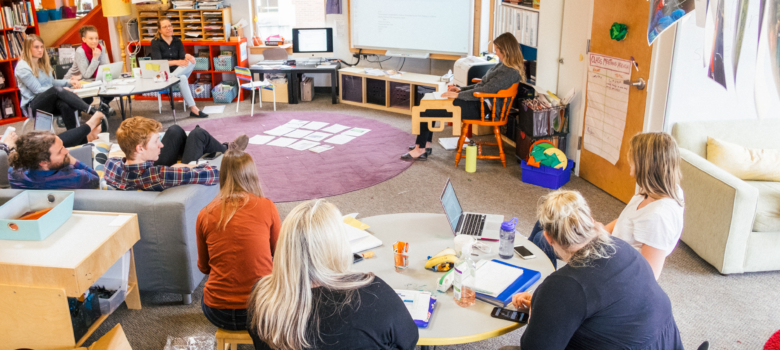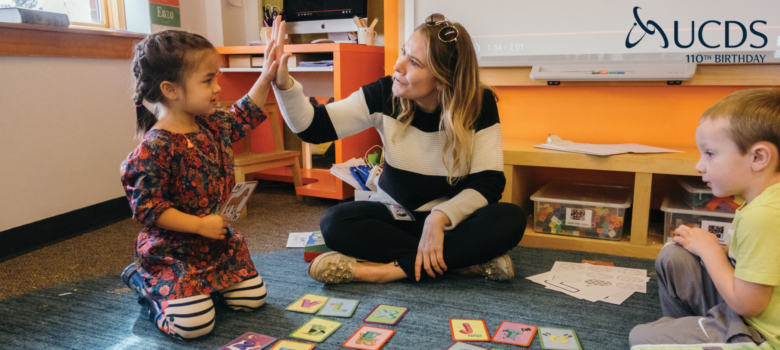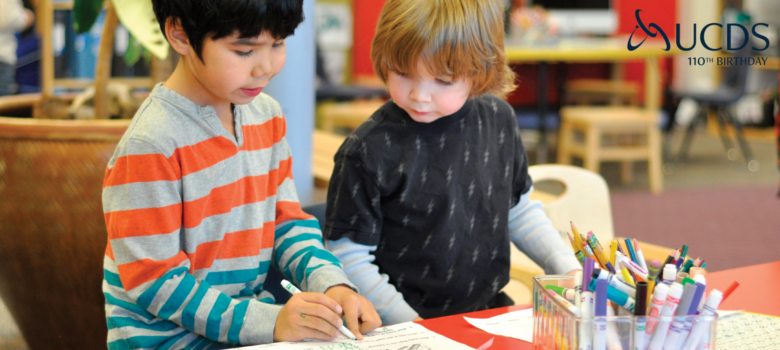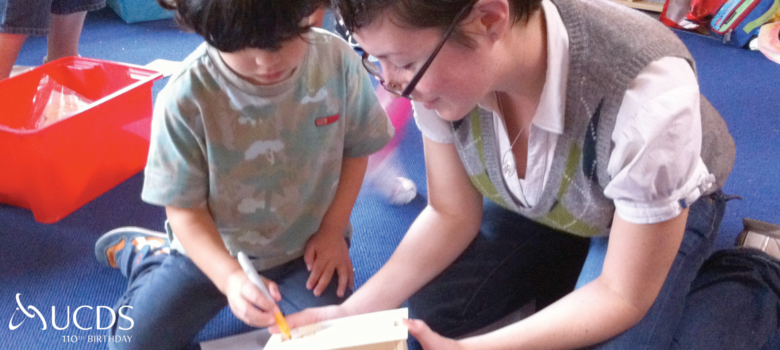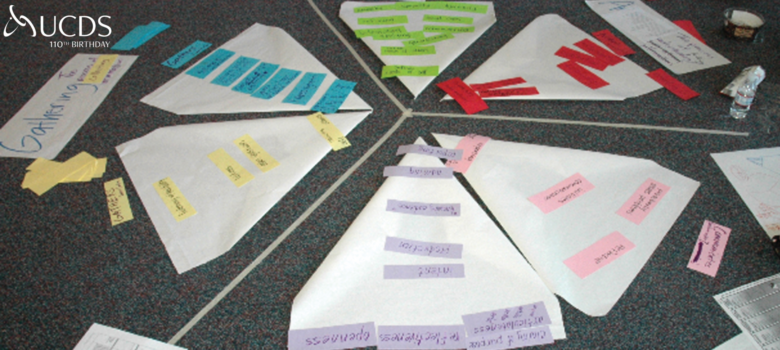Graduate Program Manager Natasha Rogers describes the collaborative culture at UCDS. Natasha shares how it has helped shape her relationships with colleagues and the development of the Graduate Program. -Ed.
– – – –
During our first course design cycle for the UCDS College for School Culture (CSC), I got to join a meeting of the course authors that wonderfully exemplified collaboration at UCDS. One of the collaborative quarter teams decided to map out their planning together, week-by-week, on one huge document the size of a conference table. We laid out course questions, practicum prompts and topics for investigation that each author had envisioned for their courses. What became visible through this documentation was the synergy and dialogue between the courses. The room filled with excitement as authors shifted their weekly plans around for more dynamic alignment and imagined the experiences of students progressing through the quarter. It was clear that everyone in the room had come prepared to learn and allow the work be transformed by the collaboration.
Professional collaboration at UCDS is instructive, challenging, and transformative, not just for the work but also personally. Since joining the CSC team a few years ago, I’ve had the opportunity to sit on a number of ad-hoc teams comprised of members committed to learning from each other and producing results strengthened by a variety of perspectives. We are structuring our design process to intentionally benefit from voices across our organization, faculty and administration, and from across the fields of higher education, teacher professional development, leadership practice, student services, independent school associations and more. We look for ways to expose our design process to the knowledge and culture that make this place so vibrant.
I find engaging in this work most rewarding when I tap into my deepest sense of curiosity and see that my co-collaborators are doing the same thing. At several points in our launch project, we’ve brought together novel groups of professionals, who each may be used to being the leader in the room. As we come together, we agree that embarking on a project that’s never been done before, where the space in front of us is filled only with our vision, values and goals, requires learning out loud. As we fill this space with tangibles—an admission process, a course of study, authored syllabi—our assumptions come to light and often change. When I arrive at these collaborations curious, I learn more about my colleagues, how they approach a challenge and what brings them to their daily work with passion, and I’m able to truly admire the innovative work being done in the teaching and learning space around the country. As we listen and document with curiosity, our program is taking a shape that perhaps no one person envisioned at the outset but that is genuinely inspiring and touched by so many voices along the way.

